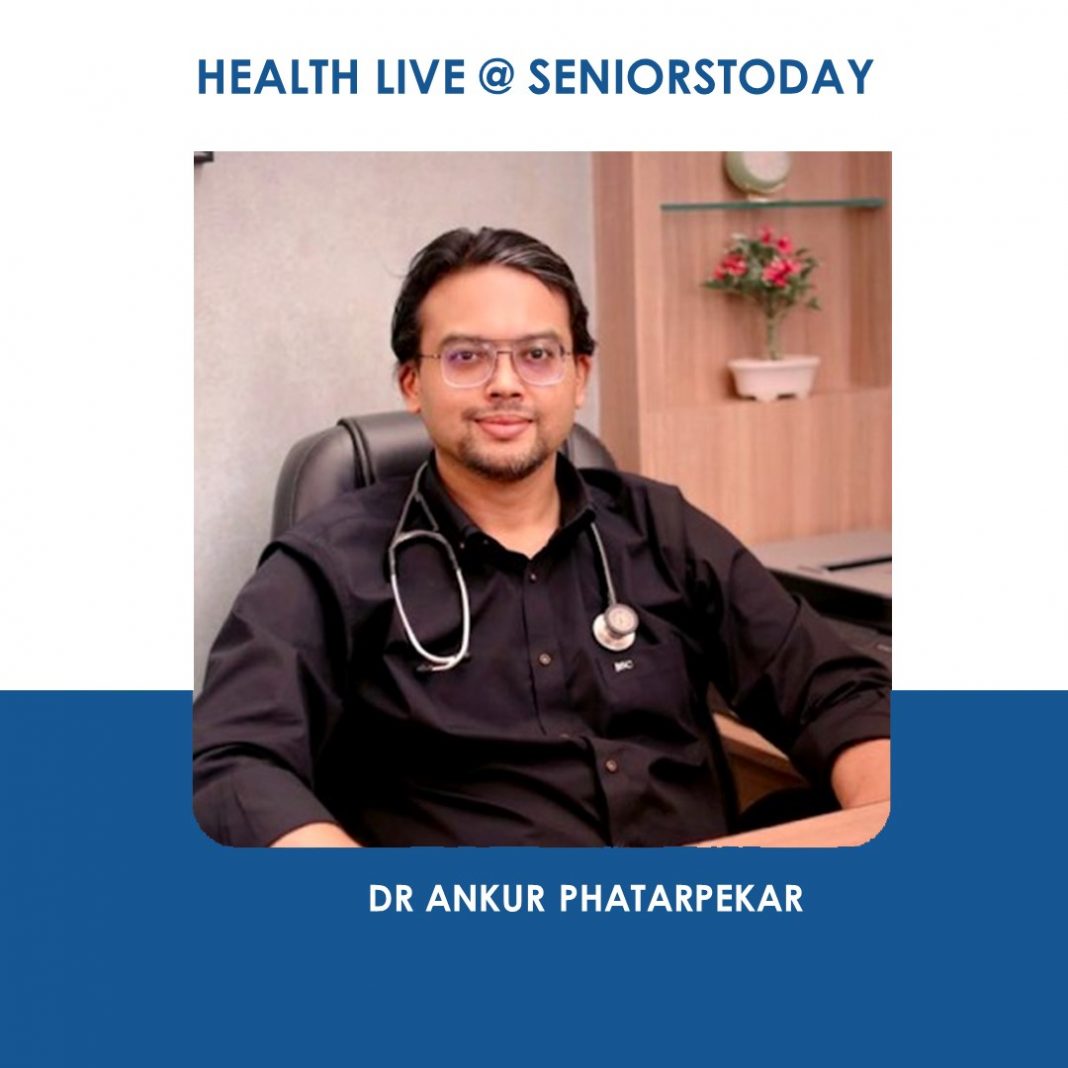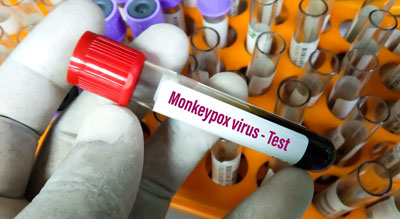On May 28, 2022, Seniors Today hosted its weekly Health Live webinar with Dr Ankur Phatarpekar who spoke on and answered questions about Heart Failure.
Dr Ankur Phatarpeka is an alumnus of the Seth GS Medical College. He has performed more than 300 PCI procedures as primary operator including 50 primary angioplasties in myocardial infarction (PAMI). He has significant experience in managing chronic total occlusions and use of intravascular ultrasonography (IVUS). Dr Phatarpekar has attended workshops on OCT in coronary arteries under Dr Guglielmo. He has performed more than 100 balloon mitral and has performed device closures of ASD, PDA and VSD, balloon procedures of aortic and pulmonary valve, coarctoplasty.
He is also active in the upcoming field of onco cardiology, having experience of treating a special subset of cancer patients with long-term cardiac issues due to chemotherapy.
This session is being conducted on the occasion of Heart Failure Awareness Month.
Many times people use the terms – heart attack, heart failure and stroke very loosely and synonymously.
Heart is a bunch/ bundle of muscles that pumps or ejects blood out, the oxygenated blood it receives from the lungs, whatever it receives the left heart pumps it out.
Heart also requires blood, so the arteries supplying the heart are called coronary arteries. Any blockage in the arteries, the blood flow to the heart goes down and as a result of that, the muscle of the heart gets damaged and this is called a heart attack.
Heart attack is a result of acute closing of one of the arteries supplying your heart. And because of this, the patient may experience chest pain, sweating, uneasiness, breathlessness. If a significant area if the heart is compromised because of which, the heart, as a pump stops pumping optimally- it is still receiving blood into the lungs into the heart but is unable to pump the same amount out, the patient’s lungs get filled with water and this is called pulmonary oedema and this state is called heart failure.
Cardiac arrest is when the heart suddenly stops pumping blood. This happens when you have rhythm disturbances of the heart, this can be either the heart rate is above 100 bpm or below 60 bpm.
Stroke is not related to the heart.
Heart failure is often called congestive heart failure. And in this case, the congestion is in the lungs and not in the heart. This can occur either acutely or chronically.
More than 20 million people have heart failure worldwide.
The mortality rate in untreated heart failure is worse than a treated breast cancer patient. 50% would die in the next 2 years if they are not treated correctly. Which is why it is important to diagnose correctly and treat it timely.
Prevalence of heart failure in India is due to coronary heart disease, hypertension, obesity, diabetes and tobacco, and rheumatic heart disease.
Heart failure is the leading cause for hospitalisation in people over 65 years of age.
Common cardiac symptoms:
Uneasiness or breathlessness
Swelling in your feet
Unexplained fatigue
Chest pain
Lack of appetite
Investigations carried out to diagnose heart failure
Good clinical examination- checking of the lungs, heart sounds, looking for any swelling in the feet
Resting ECG
2D Echo of the heart is the investigation of choice where the ejection fraction of the heart is looked at, and an ejection fraction volume of less than 50% is a cause for concern. You will also be able to see the size of the heart and valvular leakage can also be picked up on the echo.
Angiography- this is necessary if the patient is a diabetic, tobacco chewer, smoker.
All the symptoms can also be seen in other conditions such as renal failure therefore it is important to rule out other causes for the same.
Management of heart failure includes:
Fluid restriction- this is very very important
Salt restriction
Oral medications are now available
Surgical management and interventional procedures and therapies. This includes cardiac resynchronisation therapy
Heart transplant




